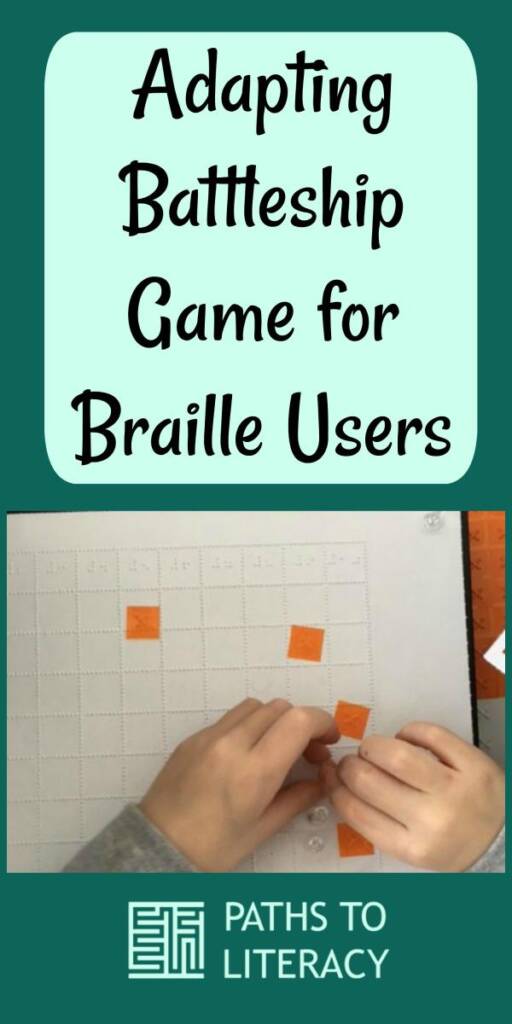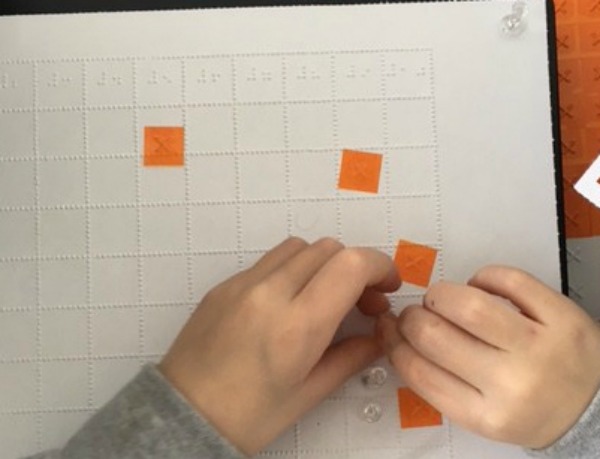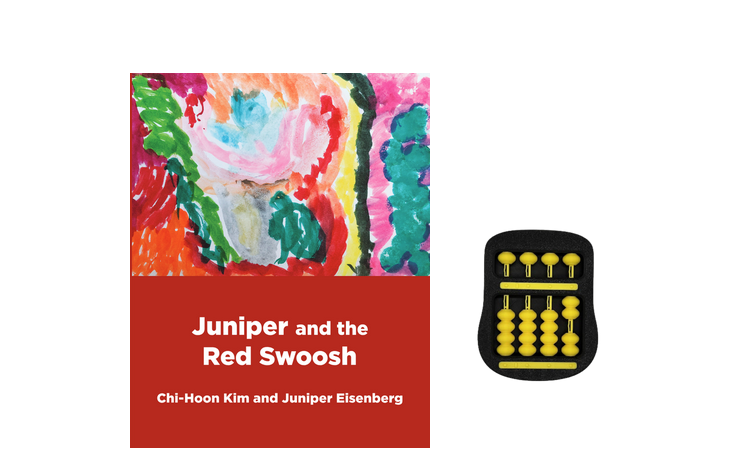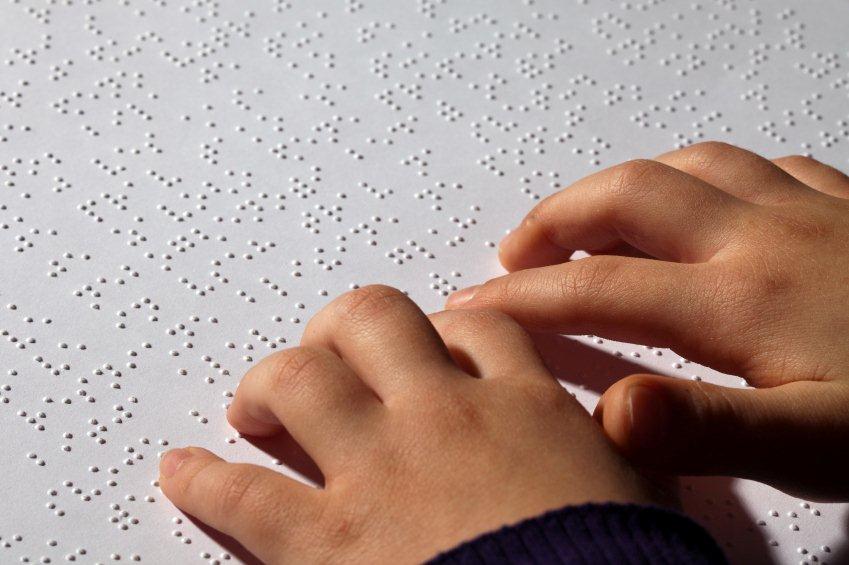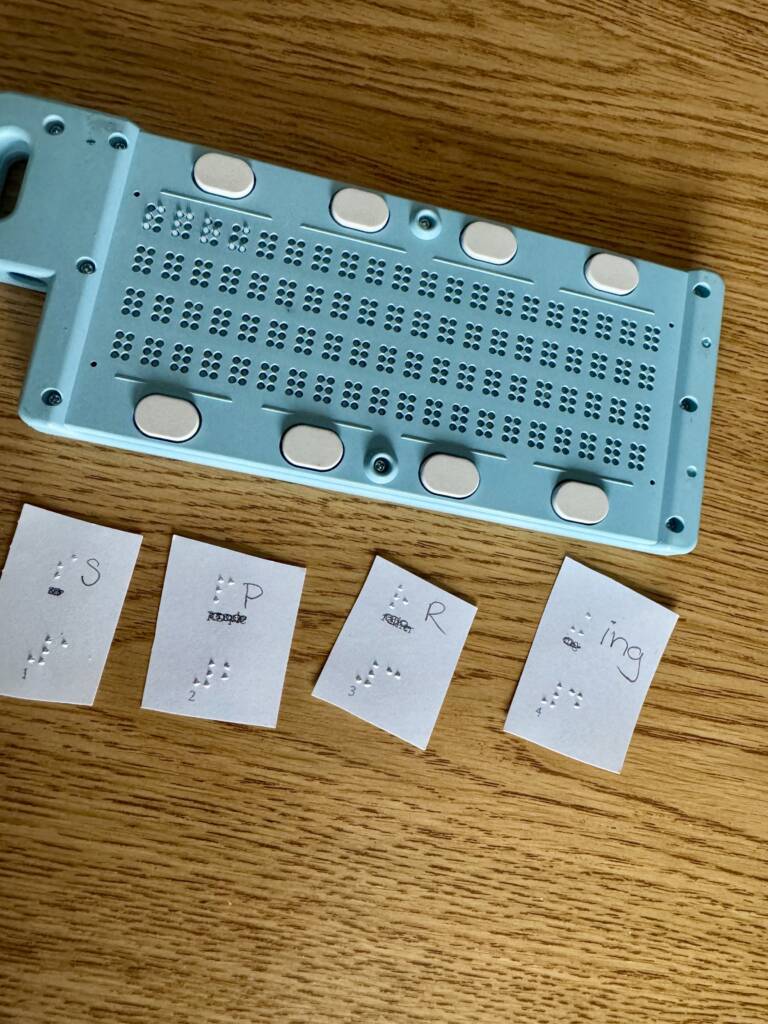My 8-year-old son and I enjoy a friendly game of Battleship every once in a while. It is the kind of game that you can start, walk away from for a little, and then return to. In my current stage of life this is a necessity, as I have a 3 year old and almost 11 month old who are also needing my constant attention… especially when it is game time with my big boy.
Modifying the Traditional Game of Battleship
The traditional game of battleship may turn you off when you are thinking of how to modify it for a blind or visually impaired student. When I see those little red and white pegs I shudder at the thought of them getting dumped all over the floor, which is guaranteed to happen at least once per game in my house. In all reality, Battleship is just a game board made of two grids on which you plot out where your ships go, and a place to keep track of the hits and misses of your opponent’s ships.
After playing this with my son recently, I knew it would be fun to play with my 3rd grade braille reader as well. The wheels were turning. Although I think I am pretty creative at times, I knew that if I had thought of it perhaps others had as well. I began to hunt the world wide web for some guidance on how to get started. I came across an image of a worksheet online and decided to print it off as a starting point.
As you can see below, I took this basic layout and created a template which I embossed on our Juliet 120 embosser.
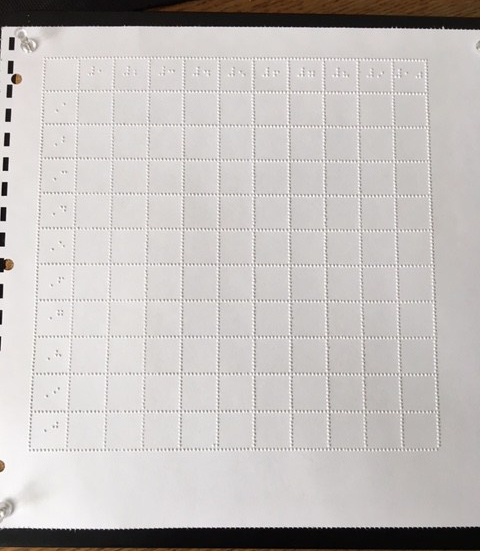
It is a basic grid with the Nemeth numbers across the top and the literary letters down the left side. I embossed two of these templates so that my student could use one for placing her ships and the other to mark her hits and misses when she guessed the location of my ships.
Materials Used for Braille Battleship Game
Other than the print copy for me and the two embossed pages for my student, here is a list of other materials we used:
- bump dots
- two different colored markers
- cork board tile to mount her hit and misses page to
- feel and peel tactile stickers
- push pins
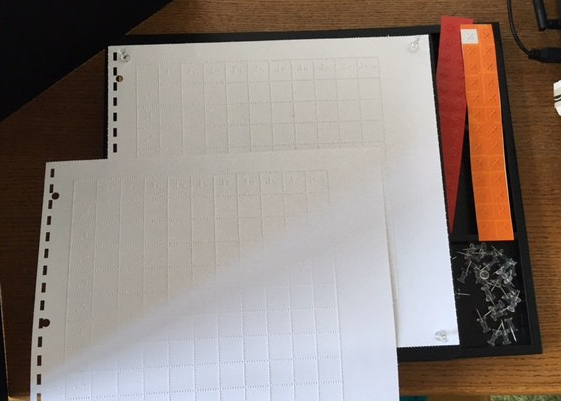
Using Tactile Markers to Play Game
Below you can see my student used clear bump dots to label where her ship are located. In hindsight, I should have had her used the feel and peel alphabet tactile stickers so that she would be able to identify which ship it is that I hit, but for our first go around this worked fine.
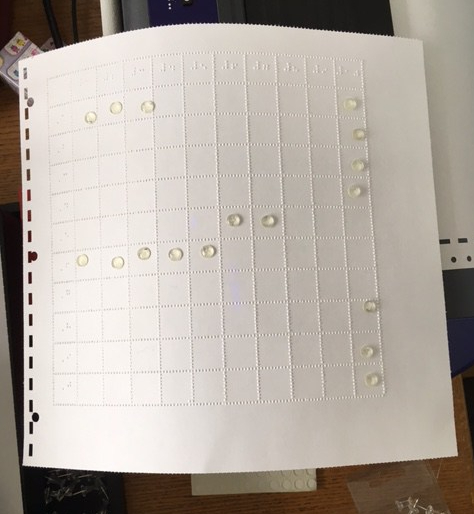
Below you can see how she marked her misses on the left with tactile stickers, and her hits on the right with push pins:
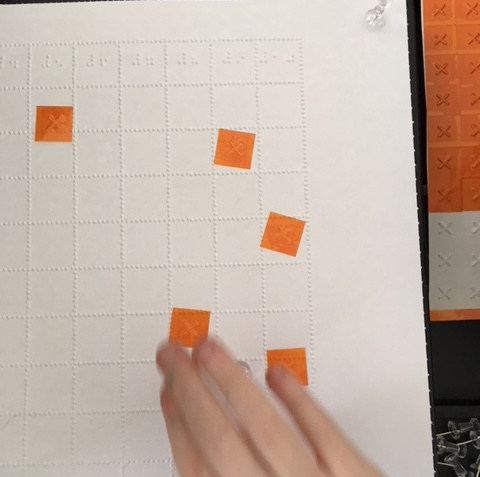
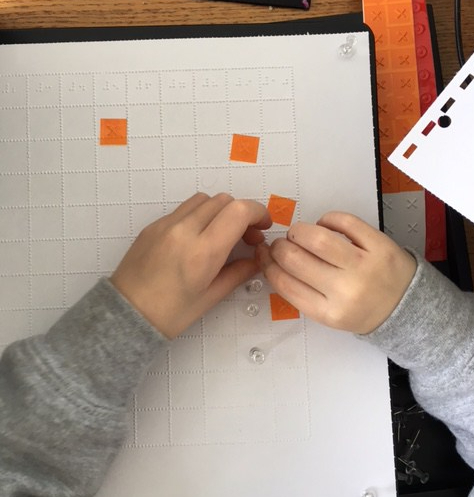
Again, this can be modified to use the alphabet feel and peel stickers to label a hit rather than a push pin, if you do not have a cork board handy.
Skills Addressed While Playing Game
The game was a success! What made it even better was when she left our lesson that day she turned around and said, “We didn’t do any work today, but we got to play the whole time.” Little does she know that she worked on a whole bunch of skills including: tracking and reading a grid, identifying Nemeth and literary braille, keeping her place while marking a spot, multi-tasking by switching from one sheet to the other, keeping her materials organized to enable her to stay on task, recreation and leisure, social skills, and I am sure I can think of some more if I had the time…
I think that is the greatest compliment any teacher can get from a student after an hour long lesson! Knowing that there was a long list of skills worked on, but only the fun was recognized!
